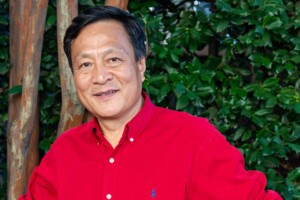Among the challenges posed by climate change, floodwater looms large. Today, cities grapple with regular inundations brought by intensifying downpours and extreme weather events, and conventional approaches to stormwater management—drainage pipes, concrete channels, and the like—are proving insufficient. Landscape architect Kongjian Yu DDes ’95 offers an alternative solution, one that welcomes the water rather than fights to expel it. Yu calls this concept the “sponge city,” an idea that has been applied in 250 Chinese municipalities since 2015.

A recent New York Times article by Richard Schiffman, titled “He’s Got a Plan for Cities That Flood: Stop Fighting the Water,” details Yu’s sponge city approach and includes commentary by Niall Kirkwood, Charles Eliot Professor of Landscape Architecture at the Graduate School of Design.
In place of concrete drainage infrastructures, sponge cities embrace native vegetation, land formations, and constructed wetlands to slow and absorb excess water locally before it floods streets and subways. Such living landscapes offer additional benefits, as they simultaneously filter pollutants from surface water, provide habitats for wildlife, and offer recreational spaces for urban dwellers.

In September 2023, Yu delivered the Sylvester Baxter Lecture at the Graduate School of Design, “Adaptation: Political, Cultural, and Ecological Design—My Journey to Heal the Planet.” He discussed how his agricultural upbringing, experiences with the art of Chinese landscaping, and studies at the GSD inform his ideas about urban water management. The following month, the Cultural Landscape Foundation awarded Yu the 2023 Cornelia Han Oberlander International Landscape Architecture Prize (also known as the Oberlander Prize). Yu is founder of the Beijing-based firm Turenscape and professor at Peking University in Beijing.